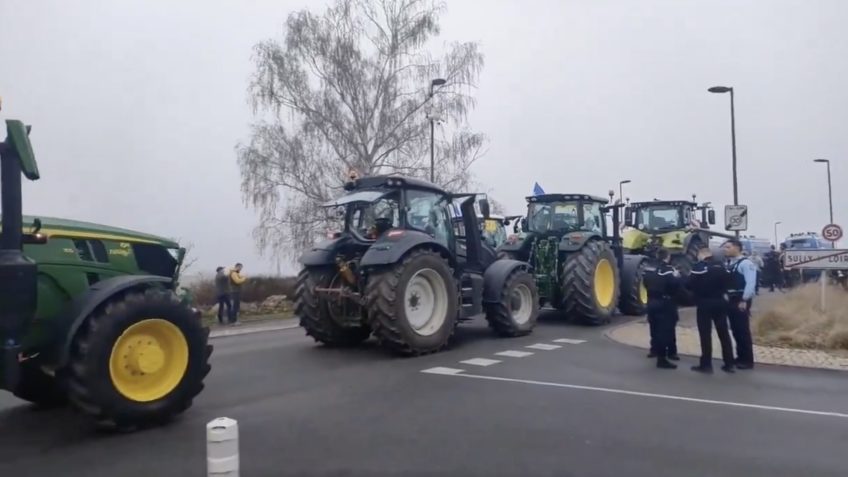
Insper study analyzes the conflicting relationships between sustainability and rural production in the block, writes Bruno Blecher
Yaw to the right.
It was the headline in most newspapers around the world on Monday (June 10, 2024) about the results of the elections for the European Union Parliament.
The votes indicated the rise of the extreme right and the defeat of the green parties, to the delight of the rural sector, which since 2022 has been occupying streets and roads with their tractors to protest against the EU’s environmental sustainability plans and the extensive and bureaucratic package of restrictions on agricultural production in the European Union.
Environmentalists and ruralists have never clashed in Europe.
[shortocode-newsletter]
A study launched on Tuesday (June 11, 2024) by Insper Agro Global –“Times of Crisis: An Analysis of Agricultural Demonstrations in Europe”– explains the “arm game” between European Union bureaucrats and European farmers since the approval of the European Green Deal in 2019, a set of actions to achieve climate neutrality in the region by 2050.
Authored by Lorena Liz Giusti e Santos and Paulo Henrique Carrer Ribeiro, the document was prepared under the supervision of Camila Dias de Sá and Leandro Giulio. It provides a complete overview of agricultural policy in the EU from the Second World War to the ruralist demonstrations of 2024.
The highlight of the European Green Deal, highlights the study, is the strategy “Farm to Fork”which establishes a series of restrictions on rural production to make food systems “fairer, healthier and ecological”.
In February 2024, farmers blocked the main highways leading to Paris and set up camps across the French countryside. The protests were repeated in several countries on the continent.
The farmers’ rebuke is not only against the restrictions imposed on agricultural production, but also with the increasing entry of Ukrainian products into the bloc.
Faced with the escalation of protests, the European Union decided to ease some policies, such as drastically reducing the use of pesticides, but this story is far from over.
“The outcome of this complex interaction between economic and environmental interests remains uncertain. As the EU seeks this reconciliation, the next phase of the narrative will play a crucial role in determining the future of the European agricultural sector and the global commitment to environmental sustainability,” says the Insper study.
On the one hand, farmers face serious economic pressures; on the other, consumer demands for environmental sustainability are growing.
As farmers battle mounting financial and bureaucratic challenges, demanding subsidies to stay competitive, EU bureaucrats impose high standards of environmental protection.
“Subsidies have always been a significant part of EU agricultural policy, with the aim of ensuring the stability and competitiveness, albeit artificial, of the sector. However, analysis of the recent evolution of agricultural productivity of the bloc’s main products reveals that the results have not been successful”explains Insper.
The main reasons, according to the authors, are excessive environmental restrictions, difficulties in adopting new technologies and lack of policies to encourage innovation. All of this contributed to slowing productivity, resulting in market distortions and environmental damage.
As a result, agricultural productivity gains have waned over the past decade, leaving the EU behind other major global producers.
The high level of subsidies also impacts international negotiations, creating distortions in the market and hindering access to products from other regions, as in the case of Mercosur.
Marcos Jank, coordinator of the Insper center, recalls that subsidies have always been a significant part of the EU’s agricultural policy since 1962, with the aim of guaranteeing the stability and competitiveness, albeit artificial, of the sector.
“However, analysis of the recent evolution of agricultural productivity of the bloc’s main products reveals that the results have not been successful”, this Jank.
Interestingly, the region that was the birthplace of humanity’s 2nd Agricultural Revolution in the 19th century (agricultural mechanization, agrochemicals, etc.) is at risk of having serious food security problems in the future, explains Jank.
Source: https://www.poder360.com.br/opiniao/o-jogo-de-braco-entre-as-politicas-agricola-e-ambiental-na-europa/

